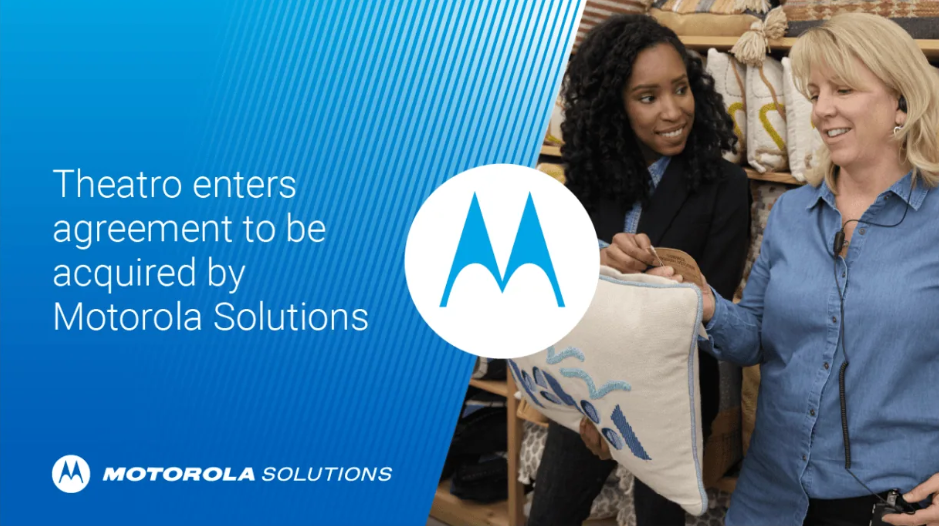Motorola Solutions has announced its definitive agreement to acquire Theatro Labs, a Texas-based innovator specializing in AI and voice-powered communication solutions tailored for frontline workers. This acquisition is not merely a business transaction; it represents a significant opportunity for small and medium-sized businesses (SMBs) across various sectors, including education, healthcare, and hospitality. By integrating Theatro’s software-as-a-service platform into its existing portfolio, Motorola Solutions aims to enhance safety and productivity tools across diverse industries, which can be particularly beneficial for SMB leaders navigating post-pandemic recovery and operational efficiency.
Theatro’s platform operates through wearable devices paired with an AI voice assistant, offering SMBs an advanced method to streamline daily tasks. Frontline employees can utilize conversational commands to check inventory, assist customers, or communicate with team members, which remarkably reduces the time spent on these tasks. By automating basic but essential functions, businesses can empower their employees to focus on higher-value work that directly impacts customer satisfaction and bottom-line results. In this context, workflows can be optimized to minimize distractions and allow staff to prioritize critical service and operational tasks.
Importantly, Theatro’s technology introduces safety protocols directly into daily workflows. Employees can discreetly alert management or security during potentially unsafe circumstances, while the AI assistant offers step-by-step response protocols. This seamless integration of safety measures not only enhances employee confidence but also minimizes the potential for disruptions that could affect the work environment. By prioritizing safety and operational efficiency, SMBs can create a more secure atmosphere, thereby improving employee retention and overall productivity.
For SMB leaders seeking to implement AI-driven workflows, it is crucial to understand how these technologies can drive return on investment (ROI). When considering the integration of AI tools, businesses should evaluate the impact of automation on cost savings, time efficiency, and improved decision-making processes. For instance, a store experiencing frequent inventory discrepancies may find that automating inventory checks using AI voice commands significantly reduces these errors, ensuring better stock management and minimizing financial losses. This kind of optimization not only enhances operational efficiency but can also lead to better customer experiences, which translates directly into increased sales.
Moreover, AI-driven workflows can inform better decision-making processes at various organizational levels by leveraging data analytics. The information gathered through AI systems can provide insights into customer behaviors, preferences, and operational bottlenecks. For SMBs, this means having the ability to make data-informed choices that can significantly improve strategies in marketing, inventory management, and customer relations. For example, understanding peak shopping times can help a retailer allocate staff more efficiently during busy hours, ultimately maximizing both employee productivity and customer satisfaction.
Integrating AI into existing business systems does not necessarily mean overhauling current operations; rather, it can involve incremental changes that build toward a more cohesive and efficient workflow. As Motorola Solutions combines Theatro’s technology with its existing safety and communication tools, SMBs should consider how they can adopt a similar approach. By starting small—perhaps with one department or specific task—and gradually expanding the use of AI-driven workflows, businesses can mitigate risks associated with change and observe tangible benefits without overwhelming their resources.
A vital component of maximizing AI-driven workflows is ensuring proper training and support for employees. Seamless technology adoption hinges on employees feeling comfortable with new tools. Therefore, SMB leaders should invest in training programs that demonstrate how these systems work, illustrating their direct benefits through hands-on experience. This not only boosts confidence among staff but also engenders a culture of innovation within the organization, where employees are encouraged to leverage technology for improved performance.
As businesses look toward the future, the shift toward AI-driven operations will become increasingly essential. The integration of tools that prioritize safety and productivity is no longer a luxury but rather a necessity in today’s competitive landscape. Motorola Solutions’ acquisition of Theatro Labs signals a growing trend in leveraging AI within operational frameworks, showcasing how advanced technologies can shape not just individual organizations but entire industries.
In conclusion, SMB leaders must recognize the potential of AI-driven workflows as a transformative force in enhancing operational efficiency and decision-making. Investing in these technologies not only streamlines day-to-day tasks but also bolsters safety protocols and improves overall employee satisfaction. By embracing a gradual approach to AI integration and prioritizing effective training, smaller organizations can significantly enhance their productivity while positioning themselves favorably in an ever-evolving market.
FlowMind AI Insight: The future of workplace efficiency lies in intelligent automation and AI-driven workflows. By integrating advanced technologies thoughtfully and strategically, SMBs can not only optimize daily operations but also redefine their service standards and competitive edge.
Original article: Read here
2025-01-13 08:00:00

